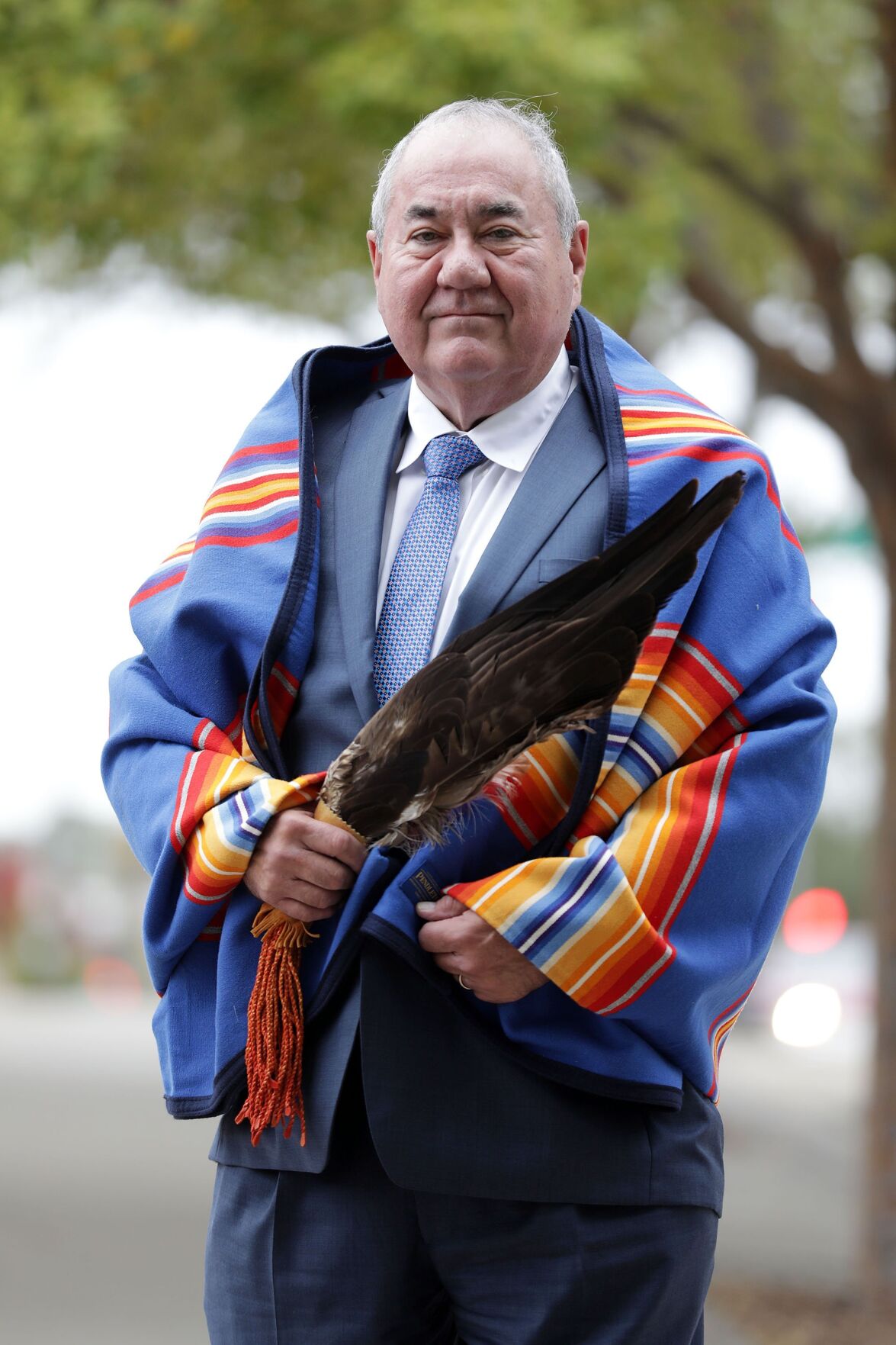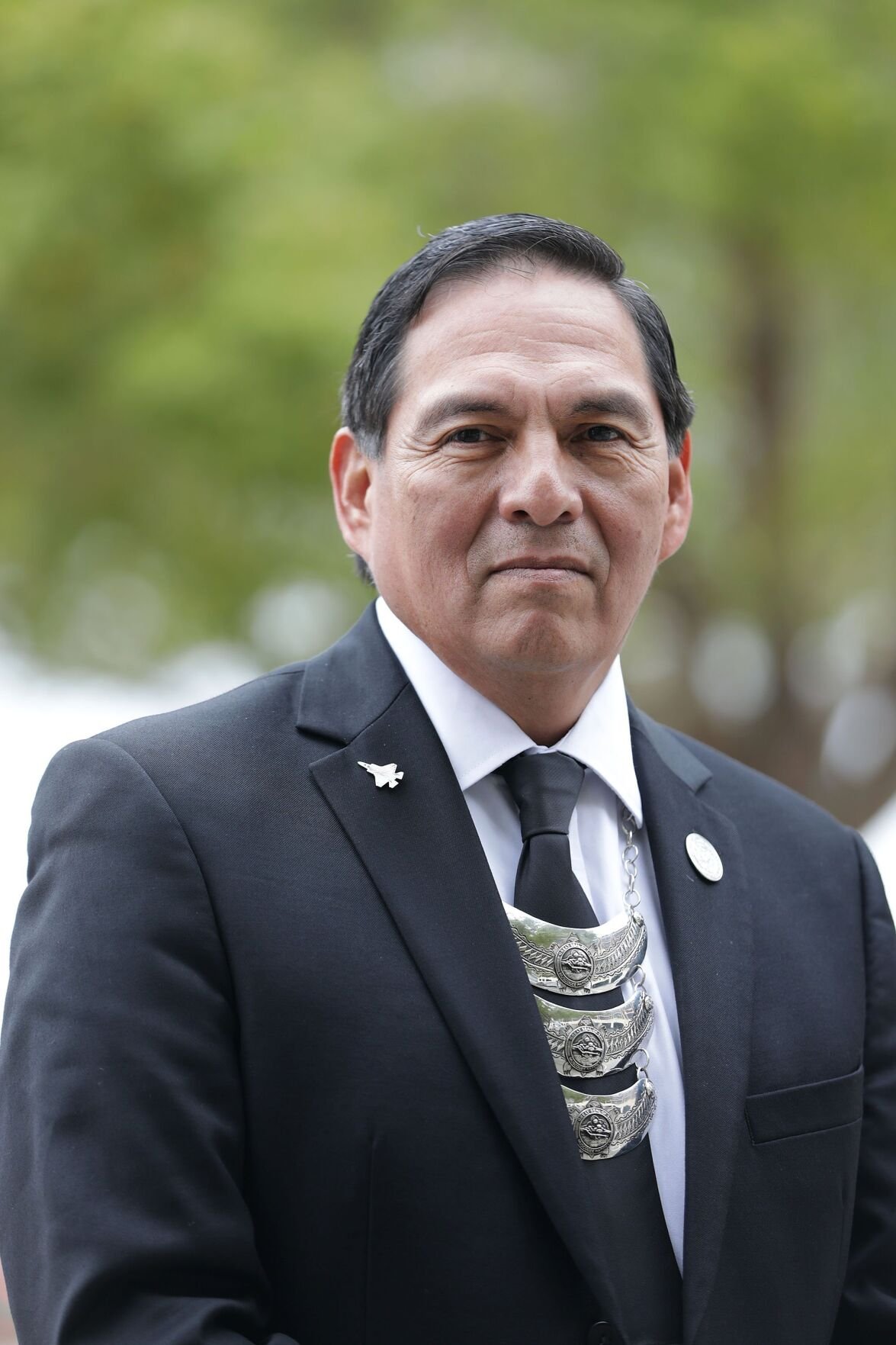The convention room had a TV monitor displaying real-time numbers of reported COVID-19 instances from throughout the nation. However because the assembly started on March 19, 2020, the display screen reported no deaths in Oklahoma.
Principal Chief David Hill watched the scrolling information as he met with an emergency job power to plan the Muscogee Nation’s response to the approaching pandemic. And he remembers the second when the state’s quantity switched from zero to at least one.
“I nonetheless have an image of it,” Hill says. “I feel we had been all questioning simply how excessive that quantity would ultimately get.”
When the present chiefs had been younger males, the three main tribes within the Tulsa space would have performed a minimal position in coping with such an enormous disaster, particularly outdoors their very own populations. Chief Chuck Hoskin Jr., for instance, remembers when the Cherokee Nation purchased an RV to ship well being care providers to rural communities, which appeared like an unlimited funding on the time.
Now the Cherokees function the most important tribal well being system within the nation with a $924 million annual funds. And the Muscogee Nation invested $40 million this 12 months to purchase a hospital constructing in south Tulsa, the place it opened a COVID therapy clinic not only for tribal residents however for all Tulsa residents.
If there was any doubt earlier than the pandemic, COVID-19 made it very clear that each one three tribes — Cherokee, Muscogee and Osage — now play a serious position in shaping public coverage throughout northeast Oklahoma. And as vaccines grew to become extensively obtainable this 12 months, the tribes grew to become indispensable companions with state and county governments to distribute the pictures.
‘Set to work collectively’
Principal Chief Geoffrey Standing Bear requested the tribal newspaper to come back take photographs final December when he grew to become one of many first folks within the Osage Nation to take a COVID-19 vaccine.
“I wished all people to see it,” Standing Bear says. “’Look, I’ve taken it and I’m nonetheless right here.’ I did the identical factor with the second shot and now the booster. I’ve had the newspaper there each time.”
However he understands why lots of people stay skeptical in regards to the vaccines. The federal authorities has an extended historical past of breaking guarantees to Indian tribes, he says. And the pharmaceutical trade reassured the general public in regards to the security of prescription opioids whereas the medication wreaked havoc throughout the Osage Nation and the remainder of Oklahoma, he says.
“They introduced it on themselves, this stage of mistrust,” Standing Bear says. “The pharmaceutical corporations and the federal government saved doing issues over the a long time that allowed this type of state of affairs to occur, due to the best way they behaved.”
However historical past additionally confirmed Standing Bear how vital it was to distribute the vaccines as extensively as attainable. The Osage Nation misplaced roughly 90% of its inhabitants between 1808, when the tribe was compelled out of its ancestral homeland in Missouri, and 1890, when the Osage Reservation grew to become a part of Oklahoma Territory.
“It was largely from illness,” Standing Bear says. “Measles, typhus, smallpox — they caught all people without warning. And it was devastating. So we have now seen what illness can do. And that’s why we perceive how vital it’s to be alert and work collectively. Shortly. That’s the important thing. You started working collectively shortly. If we don’t work collectively, all people’s going to undergo.”
‘Our duty’
Chief Hoskin grew up in Vinita, 90 miles northeast of Tulsa. He graduated from the College of Oklahoma, 130 miles southwest of town. And now he serves as chief in Tahlequah, practically 100 miles southeast.

“A part of my purpose as chief,” Cherokee Nation Principal Chief Chuck Hoskin, Jr. says, “is to make it possible for there’s an understanding that all the reservation is our duty.”
Nonetheless, he’s being honored as a Tulsan of the Yr, together with Chief Hill in Okmulgee and Chief Standing Bear in Pawhuska. None of them stay or work right here, so is it stretching the definition of “Tulsan”?
“I’ve not lived there, however I really like town,” he says.
All three tribes have clearly performed a big position in Tulsa historical past, however they appear more likely to have an excellent greater affect on town’s future, Hoskin says.
“It’s vital to the tribes as a result of it’s such a middle of financial and cultural vitality for this area,” he says. “Its success means success for the Cherokee Nation additionally. However I feel we’re in an period the place the alternative is true as nicely: The Cherokee Nation’s success is to the advantage of Tulsa.”
Vaccination efforts demonstrated that mutually useful relationship extra clearly than ever, he says. No one will ever be capable of depend the lives saved, however there’s no denying that the tribes are taking a extra energetic position in public affairs.
“A part of my purpose as chief,” Hoskin says, “is to make it possible for there’s an understanding that all the reservation is our duty.”
‘Lead by instance’
Chief Hill hesitated to take a vaccine when the pictures initially grew to become obtainable late final 12 months. Not as a result of he doubted its security however, with a restricted provide at first, he wished others to have it.
The Muscogee Nation had set clear priorities for the early batches, with the primary pictures going to tribal elders and health-care staff. Hill was going to attend his flip, till Muscogee well being officers intervened.
“You’re the chief, and we’d like you wholesome,” they instructed him. They usually wished him to set an instance.
“You bought to steer by instance,” Hill says, “particularly in a time of disaster.”
Taking workplace solely three months earlier than the pandemic reached Oklahoma, Hill had been among the many first elected officers within the state to shut public amenities, together with casinos. And when vaccines grew to become obtainable, he wished as soon as once more to set the tempo.
The tribe provided a $500 incentive for Muscogee residents who took a shot by the top of September, or $300 for individuals who take a vaccine by the top of the 12 months.
“We’ve accomplished every thing we will to advertise,” Hill says. And never simply throughout the tribe.
Like their Osage and Cherokee counterparts, Muscogee officers started providing vaccines to most people as quickly because the tribe had a big sufficient provide. They organized a drive-through clinic on the Tulsa County fairgrounds that delivered greater than 4,000 doses in late March. And the tribe’s cellular well being clinics delivered doses to rural communities for Muscogee residents and non-citizens alike.
“We take a whole lot of delight in being good neighbors,” Hill says.
Watch Now: See and Be Scene: Episode 37
Tulsa World’s James Watts, Jimmie Tramel and Grace Wooden speak Tulsa Ballet’s The Nutcracker; synthetic Christmas timber; Stillwater native Brock Harris in new Western movie and extra.








